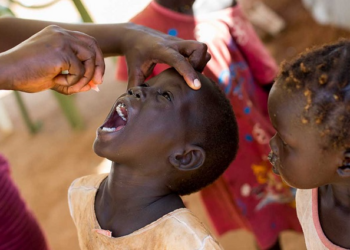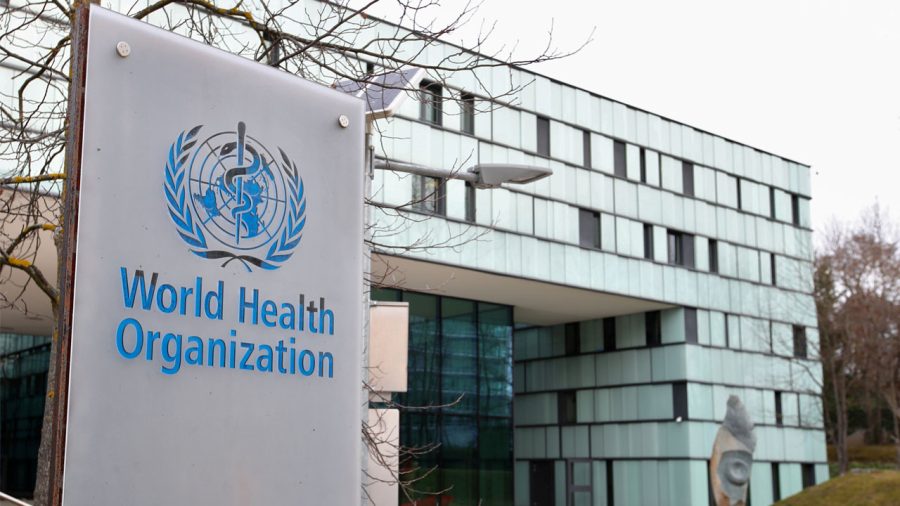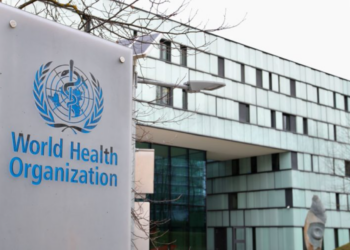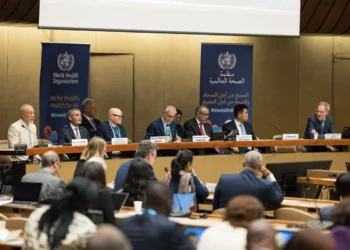The Nigeria Medical Association (NMA) Kwara Branch has raised an alarm over the critical shortage of medical doctors in the state.
With a population exceeding 3.6 million, Kwara State is serviced by only 650 medical doctors, resulting in a doctor-to-patient ratio of approximately 1:5,538, a situation that the NMA describes as a significant healthcare crisis.
Speaking at a news conference in Ilorin, ahead of the 2024 Annual General Meeting and Scientific Conference of the Association, Dr. Ola Ahmed, the outgoing NMA Chairman, highlighted the dire straits of the healthcare sector in Kwara.
Ahmed, who is concluding his two-year tenure, expressed concern over the persistent brain drain affecting healthcare delivery in the state.
The dire doctor-patient ratio
“A lot of our colleagues have been lost to brain drain in the name of Japa. This has really affected the delivery of services to the populace,” Ahmed stated.
The term “Japa” refers to the increasing trend of Nigerian professionals, including doctors, migrating abroad in search of better opportunities.
Dr. Ahmed attributed this exodus to several factors, including economic hardship, insecurity, and inadequate medical infrastructure.
He emphasized that these challenges are not only prevalent in Kwara State but are reflective of a broader national issue impacting the healthcare sector.
Despite these challenges, Dr. Ahmed commended Governor AbdulRahaman AbdulRazaq for his investments in healthcare delivery within the state.
He noted that the governor had promptly approved the consequential adjustment of medical professionals’ salaries, a move expected to motivate healthcare workers and potentially curb the brain drain trend.
The NMA chairman also outlined various achievements of the Association during his tenure.
These accomplishments include significant contributions towards the establishment of the Kwara State University Teaching Hospital (KWASUTH).
“We achieved the approval and payment of the adjusted 2019 Consolidated Medical Salary Structure (CONMESS), Skipping, and Medical Residency Training Fund (MRTF),” he said.
Further, Dr. Ahmed highlighted improvements made to the welfare of NMA members, such as the upgrade of the Secretariat’s solar power system, provision of dedicated internet service, and the furnishing of a library.
What you should know
The doctor-to-patient ratio in Kwara State is an alarming 1:5,538, far from the World Health Organization’s recommended ratio of 1:600.
- This glaring disparity highlights the urgency of addressing the healthcare challenges in the state.
- The phenomenon known as “Japa,” referring to the mass migration of skilled professionals from Nigeria to countries like the United Kingdom, the United States, and Canada, has significantly impacted the Nigerian healthcare system.
- This trend is driven by multiple factors including economic instability, insecurity, and poor working conditions in Nigeria.
- For instance, the number of Nigerian nurses in the UK increased by 46.6% in just one year, reflecting a broader trend of healthcare workers seeking better opportunities abroad.
The Nigerian government has acknowledged this crisis and is taking steps to mitigate it.
- Measures such as increasing the enrollment quota for medical students from 5,000 to 10,000 aim to address the shortage of healthcare professionals.
- Additionally, hospitals like the Federal Medical Centre in Lagos have started engaging retired specialists to fill gaps left by those who have emigrated.
- The brain drain has both positive and negative impacts.
- On one hand, it alleviates unemployment and brings in remittances that support families back home.
- On the other hand, it depletes the country of its skilled workforce, which is critical for sectors like healthcare.
























